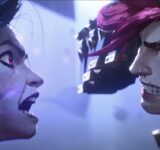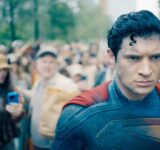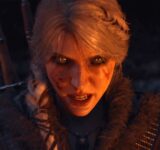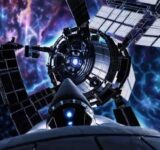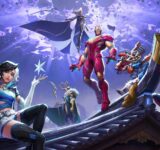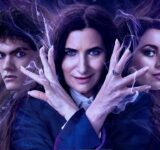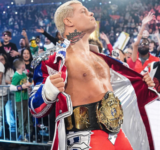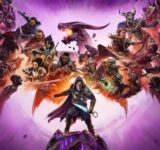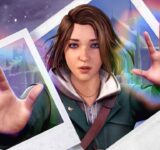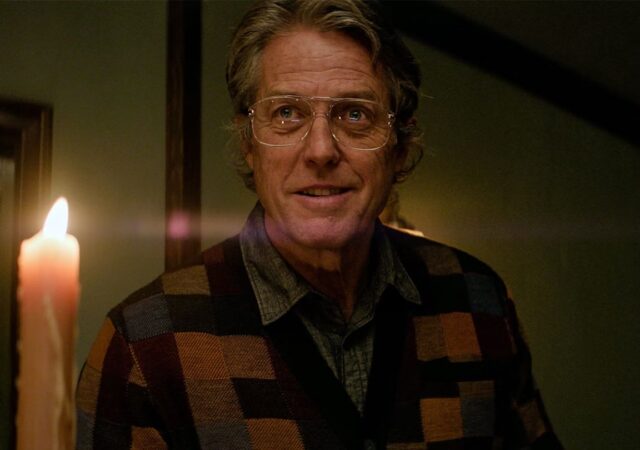I remember the visceral thrill of watching Invincible‘s first season like it was yesterday. It came out of nowhere and took the world by storm, combining brutal, jaw-dropping violence with heartfelt, nuanced storytelling. We were left breathless by the sheer audacity of Mark Grayson’s journey from an ordinary teenager to a world-saving superhero, all while grappling with the shattering betrayal by his Viltrumite father, Nolan. That season set an impossibly high bar, leaving fans like me eager yet anxious for what was to come next.
Now, after a long wait, Invincible is back for its second season, and it doesn’t take long to plunge us back into the chaos and emotional turmoil of Mark’s life. Season Two had a lot to live up to, and while it doesn’t quite reach the towering heights of its predecessor, it offers a compelling continuation that deepens the emotional stakes and expands the universe in intriguing ways.
Mark Grayson’s Turbulent Journey
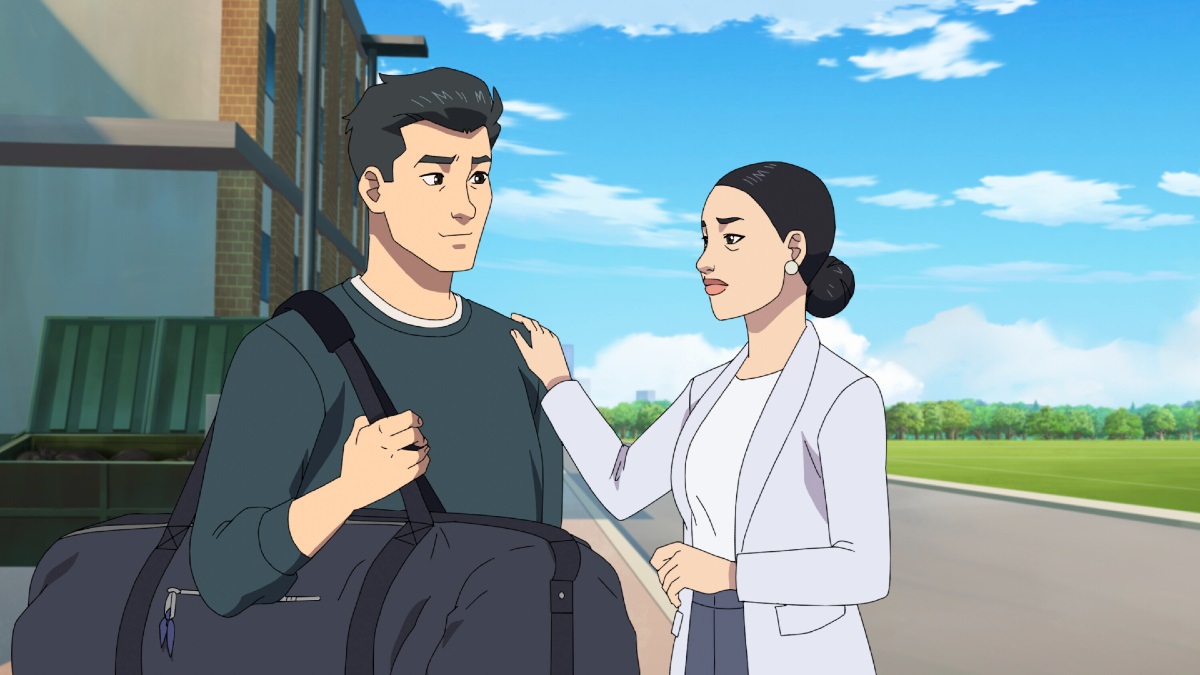
The emotional core of Season Two revolves around the wounds Mark sustained from his father. Mark’s journey through doubt, depression, and rage—especially in his conversations with his mother, Debbie (Sandra Oh)—are the series’ emotional high points. These moments showcase the intense, raw vulnerability of its characters. Debbie’s struggle with abandonment and Mark’s interactions with characters like Amber (Zazie Beetz) and William (Andrew Rannells) provide much-needed reprieves from the overarching misery, balancing the narrative with moments of warmth and humor.
The season begins with Mark and his mother, Debbie, trying to piece their lives back together after Nolan’s departure. Debbie is dealing with her own set of traumas, grappling with the revelation that her husband was not the man she thought he was. Sandra Oh’s performance as Debbie is nothing short of phenomenal, bringing a depth of emotion to the character that anchors many of the season’s most poignant moments. Her struggle with feelings of abandonment and betrayal is portrayed with such authenticity that it becomes one of the season’s standout arcs.
Mark, on the other hand, is trying to live up to the mantle of being Earth’s protector while attending college and maintaining his relationship with Amber. The writers, who balance the superheroic exploits with the mundane challenges of being a young adult handle deftly the dichotomy of his life. Mark’s interactions with Amber are particularly well-done, providing a grounded counterpoint to the fantastical elements of the show. Zazie Beetz brings a lot of charm to Amber, making her more than just a love interest but a fully realized character with her own goals and struggles.
Structural Challenges and Narrative Focus
Season Two continues to deliver on the dark and violent themes established in the first season. However, the main issue with this season lies in its fragmented narrative. There are too many different plotlines, making the season feel like a jumbled mess rather than a cohesive story. Some plot points seem to go nowhere, others take too long to circle back, and certain characters are reintroduced in a way that feels disconnected, partly due to the prolonged absence between seasons.
The season’s structure often feels uneven, with padded episode runtimes and storylines that sometimes go in circles. Subplots like Robot’s (Zachary Quinto) romantic tension with Monster Girl and his attempts to “fix” her reverse-aging curse receive obligatory check-ins that fail to develop into anything substantial. The show’s tendency to have characters talk about the effects of significant changes, rather than showing these changes, detracts from the emotional and psychological depth that could have been explored. This is particularly evident in the subplot involving Donald (Chris Diamantopoulos) and his biomechanical replacement arc, which hints at interesting themes but never fully delivers on them.
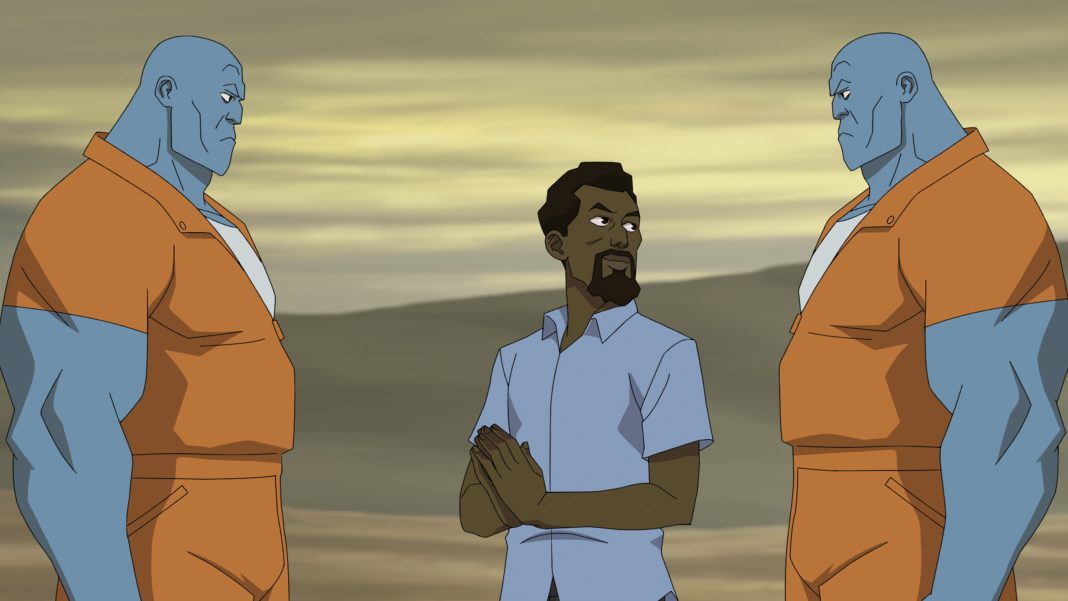
One of the season’s major narrative threads involves Mark’s interactions with Angstrom Levy, a villain with the ability to travel between dimensions. Voiced by the ever-compelling Sterling K. Brown, Levy is introduced with much fanfare but then disappears for long stretches, which dilutes the impact of his character.
This stop-and-start approach to character development is a recurring issue throughout the season. Characters are introduced with promising arcs, only to be sidelined for episodes at a time, making it difficult to stay invested in their journeys.
Supporting Characters and Plot Developments
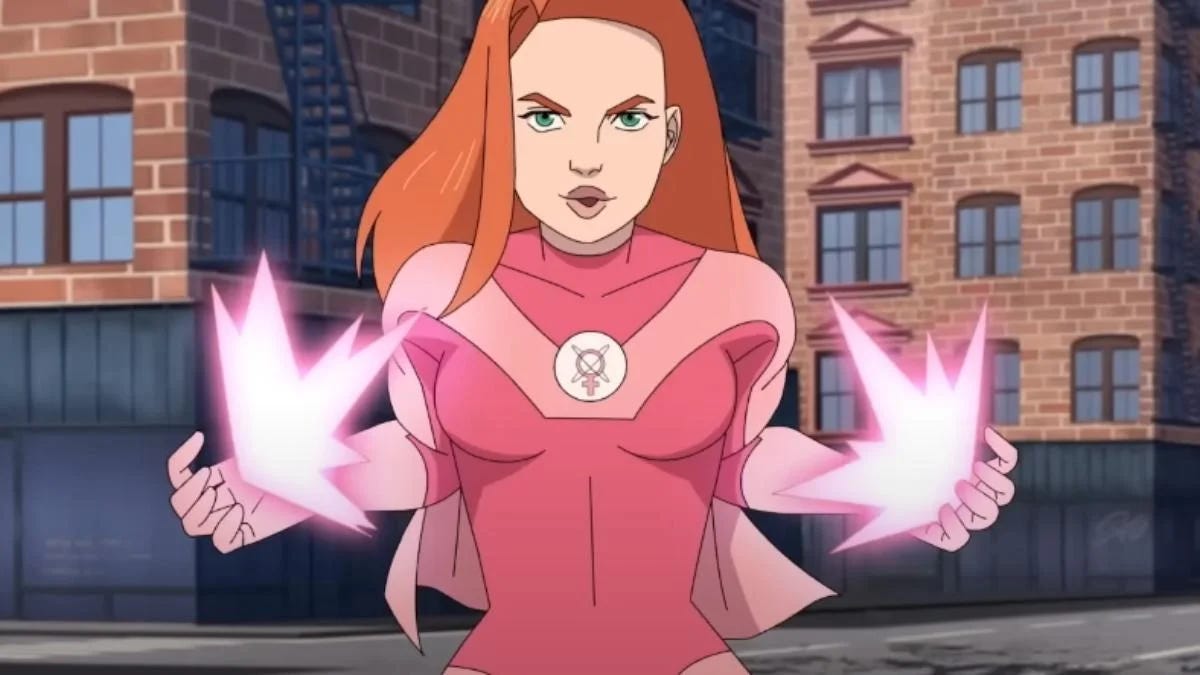
Despite its scattered narrative, Invincible Season Two manages to keep viewers engaged by frequently shifting focus when an episode starts to lag. This approach works well in moments where the show turns its attention to Mark and Eve’s (Gillian Jacobs) struggles with self-esteem and their roles as burgeoning superheroes. Debbie’s storyline also shines, particularly as she deals with re-adjusting to daily life and making the complex decision to raise Nolan’s child from another species. These plotlines provide a strong emotional foundation for the series, even if they occasionally feel underdeveloped.
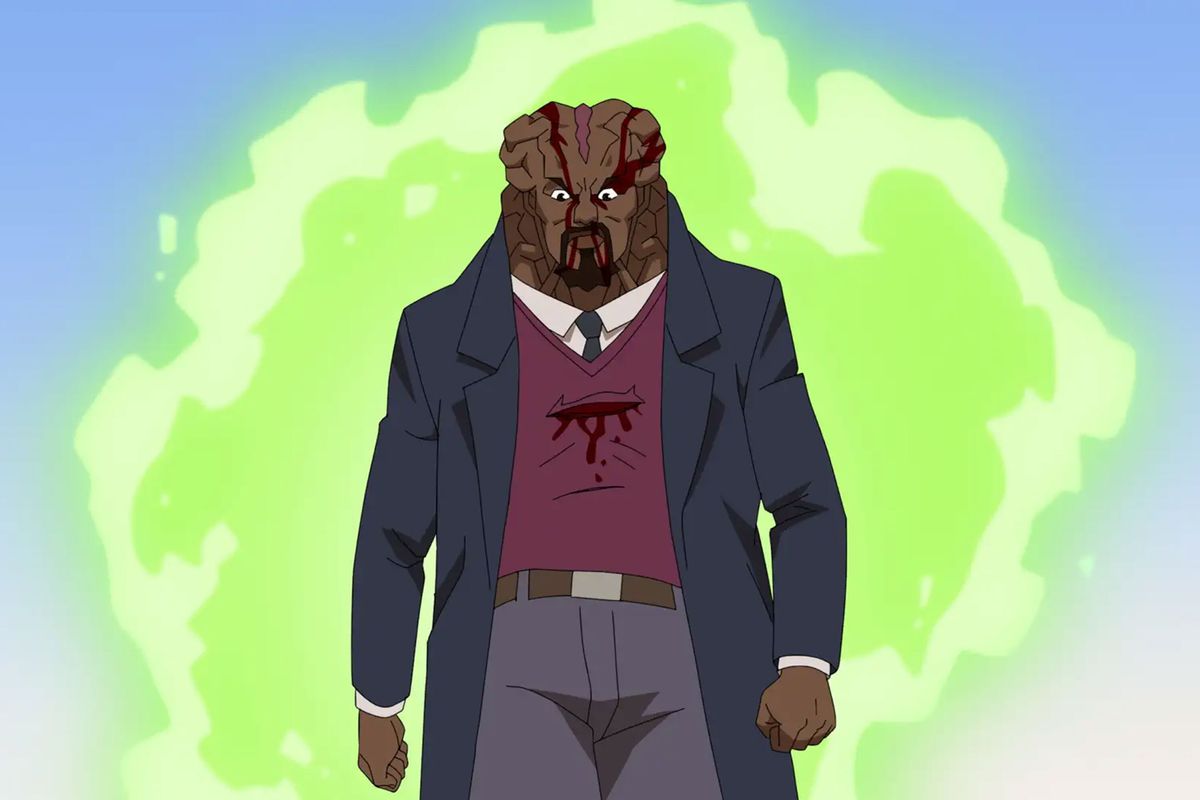
The season builds towards a climax involving Angstrom Levy, which feels somewhat disconnected given his minimal presence in the rest of the episodes. This climax highlights a recurring issue with the season’s handling of its multiverse concept—it’s intriguing but underutilized. The creators seem aware of what makes Invincible compelling, often using flashbacks or familiar imagery from Season One to make impactful statements. This technique, particularly when showing Mark’s fear of becoming like his father, is chilling and effective, leaving a lasting impression.
One subplot that stands out is the continued development of Eve. As one of the most powerful characters in the series, Eve’s journey is one of self-discovery and self-acceptance. Gillian Jacobs brings a nuanced performance to Eve, portraying her as a character who is both incredibly strong and deeply vulnerable. Her struggles with her powers and her place in the world add a rich layer of complexity to the show.
Performances and Character Dynamics
One of the season’s weaker aspects is Walton Goggins’ performance as Cecil, the head of the GDA. Goggins, usually a charismatic presence, fails to bring the necessary nuance to the role, resulting in a character that feels flat and unconvincing. In contrast, the subplot involving Donald provides some intriguing moments, despite its underexplored potential. The contrast between these performances underscores the unevenness that characterizes much of Season Two.
Nevertheless, the central trio of Mark, Debbie, and Nolan remains the show’s strongest element. Even when separated, their individual arcs and the lingering effects of Nolan’s betrayal create a powerful dramatic tension. The season’s willingness to delve into the messy, often uncomfortable realities of these characters’ lives—complete with blood and bone fragments—adds a layer of authenticity and emotional resonance that few superhero shows achieve.
Steven Yeun continues to deliver a standout performance as Mark Grayson. His portrayal of Mark’s internal struggle is compelling and heart-wrenching, capturing the character’s vulnerability and determination. Yeun’s voice acting is a masterclass in emotional range, bringing a depth to Mark that elevates the entire series. His interactions with Sandra Oh’s Debbie are particularly moving, as they navigate their fractured relationship and the lingering trauma of Nolan’s actions.
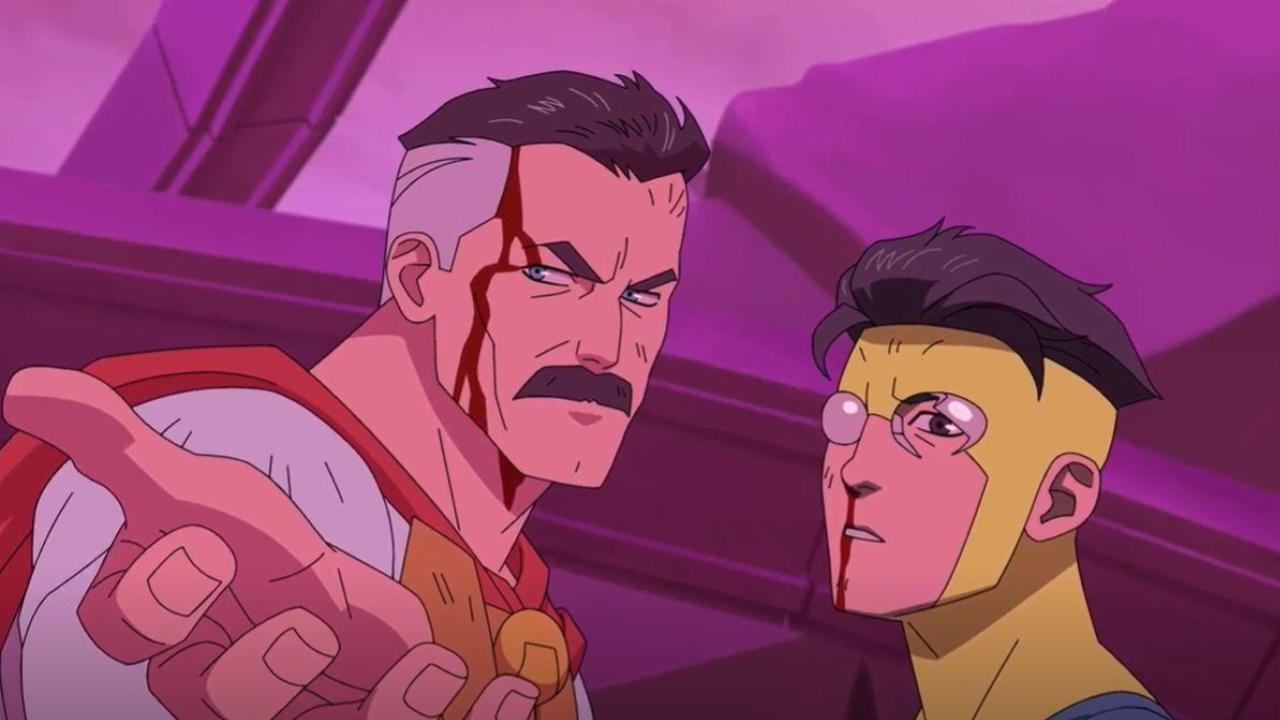
J.K. Simmons, despite having less screen time this season, continues to leave a lasting impact as Omni-Man. His presence looms large over the narrative, and his scenes are charged with tension and emotional weight. Simmons’ ability to convey both the terrifying power and the complex humanity of Nolan makes him one of the most compelling villains in recent memory.
Sterling K. Brown’s Angstrom Levy is a welcome addition to the cast. Brown brings a gravitas to the character that makes him a formidable antagonist. His scenes with Mark are some of the season’s highlights, showcasing a dynamic interplay of power and ideology. However, the underutilization of his character is a missed opportunity, as Levy’s potential as a villain is not fully realized.
Climax and Character Arcs
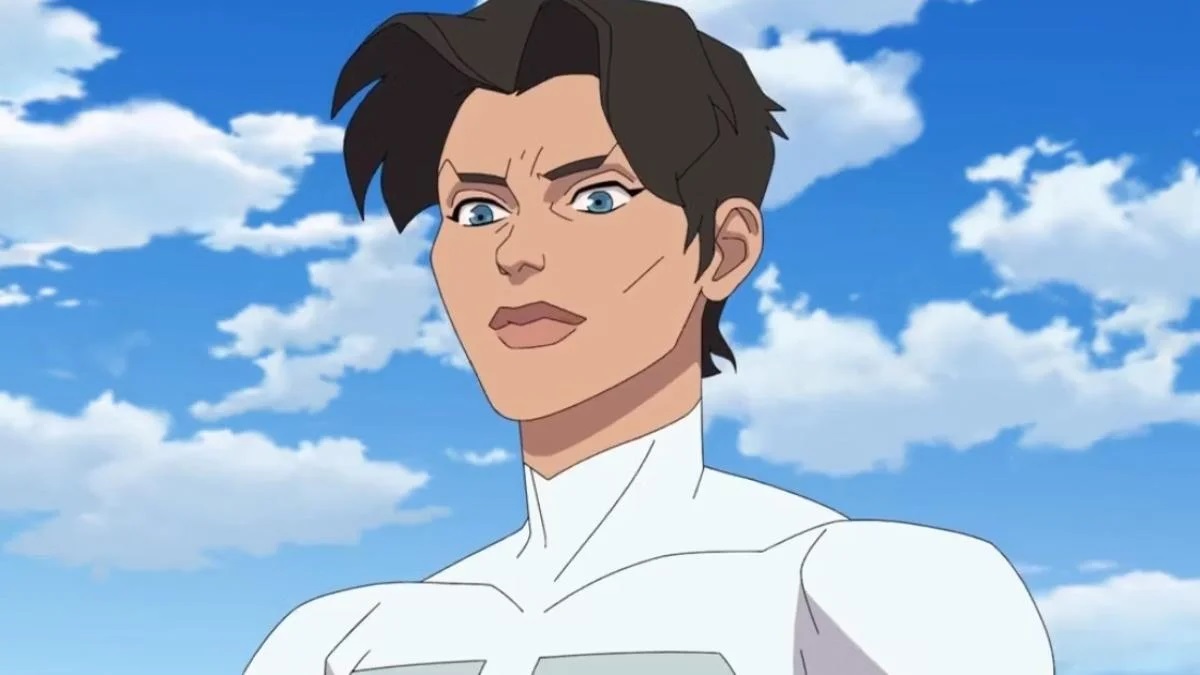
The season’s climax, involving Angstrom Levy, is a bit of a head-scratcher given how little he factors into the rest of the season. It also means the show doesn’t really take advantage of its multiverse concept. The creators are familiar enough with what works about Invincible at this stage, to the point that all they need to do is recall images of Nolan from the end of Season One in order to make a statement. Whether this means re-purposing footage in the form of flashbacks, or even slotting Mark into familiar poses and environments—an especially chilling use of animation, given his fears of becoming his father—it usually leaves a searing impact.
This is where Season Two’s uneven structure inadvertently works in its favor. If an episode is lagging, it’s never long before it cuts away to something hopefully more interesting.
Usually, it succeeds by turning its attention to Mark and Eve’s fraught self-esteem as burgeoning superheroes or Debbie’s quiet struggles with re-adjusting to daily life. She receives an additionally captivating and complex storyline midway through the season after choosing to raise Nolan’s child from another woman (and another species).
The season finale is a high-stakes affair that brings many of the season’s threads together. Mark’s confrontation with Angstrom Levy is a standout moment, showcasing the full range of his powers and the emotional turmoil he’s been grappling with. The battle is intense and visceral, with the animation team delivering some of their best work to date. The fight scenes are ferocious and meticulously designed, with intense blood spatter elevating the thrilling sequences. These moments are driven by intense emotion, and there’s no greater example than the season finale, which finds 18-year-old Mark battling during a mental breakdown. Yeun’s voice acting transcends the screen as his character’s growing pains become more gruesome.
The Return of Familiar Faces
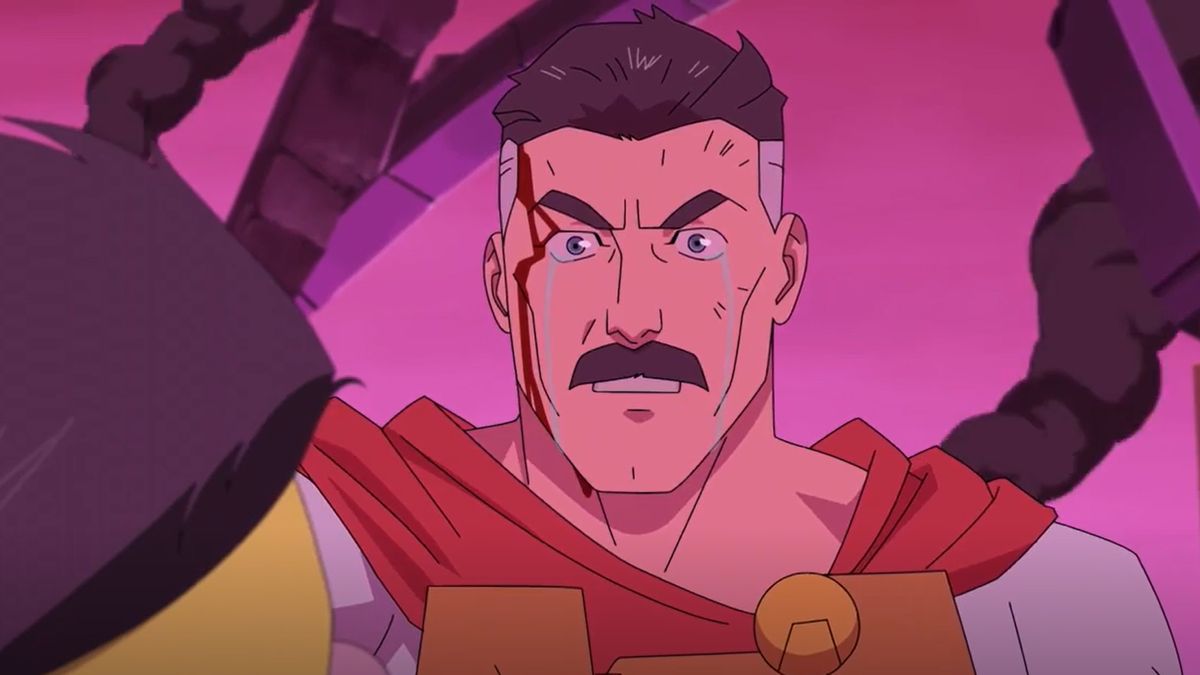
The new batch of episodes picks up with a badly injured Mark on the planet Thraxa after the Viltrumite attack. His evil father, Nolan, has been kidnapped, leaving Mark in charge of his toddler half-brother. They both eventually make it back to Earth only for him to confront the chaos of his months-long absence: failing college grades, a rotating roster of villains, and an angry Cecil Stedman. Plus, his loved ones, including his mother Debbie, girlfriend Amber, and friends William and Eve, are lonely in his absence.
As always with Invincible, those characters’ storylines are visually stunning. So when Mark whisks Amber on a magical date around town, has heartfelt conversations with Debbie about the baby they’re taking care of, or the show drops a big twist (no spoilers here), it feels, well, real. Invincible takes advantage of its format and goes wild with it, with Kirkman and the writers keenly aware of how to make these comics come off as fresh on the small screen.
One subplot that stands out is the continued development of Eve. As one of the most powerful characters in the series, Eve’s journey is one of self-discovery and self-acceptance. Gillian Jacobs brings a nuanced performance to Eve, portraying her as a character who is both incredibly strong and deeply vulnerable. Her struggles with her powers and her place in the world add a rich layer of complexity to the show.
The season also explores the fallout of Mark’s absence on his relationships. His girlfriend, Amber, feels neglected and frustrated by his constant disappearances. Their relationship is put to the test as Mark tries to balance his responsibilities as a superhero with his personal life. Zazie Beetz brings a lot of charm to Amber, making her more than just a love interest but a fully realized character with her own goals and struggles.
Mark’s friendship with William is another highlight of the season. Andrew Rannells brings a lot of heart to William, and his dynamic with Mark is one of the show’s strongest relationships. Their friendship is tested as William grapples with the dangers that come with being close to a superhero. The show does a great job of exploring the impact of Mark’s double life on his loved ones, adding depth and nuance to the narrative.
The Season’s Major Themes
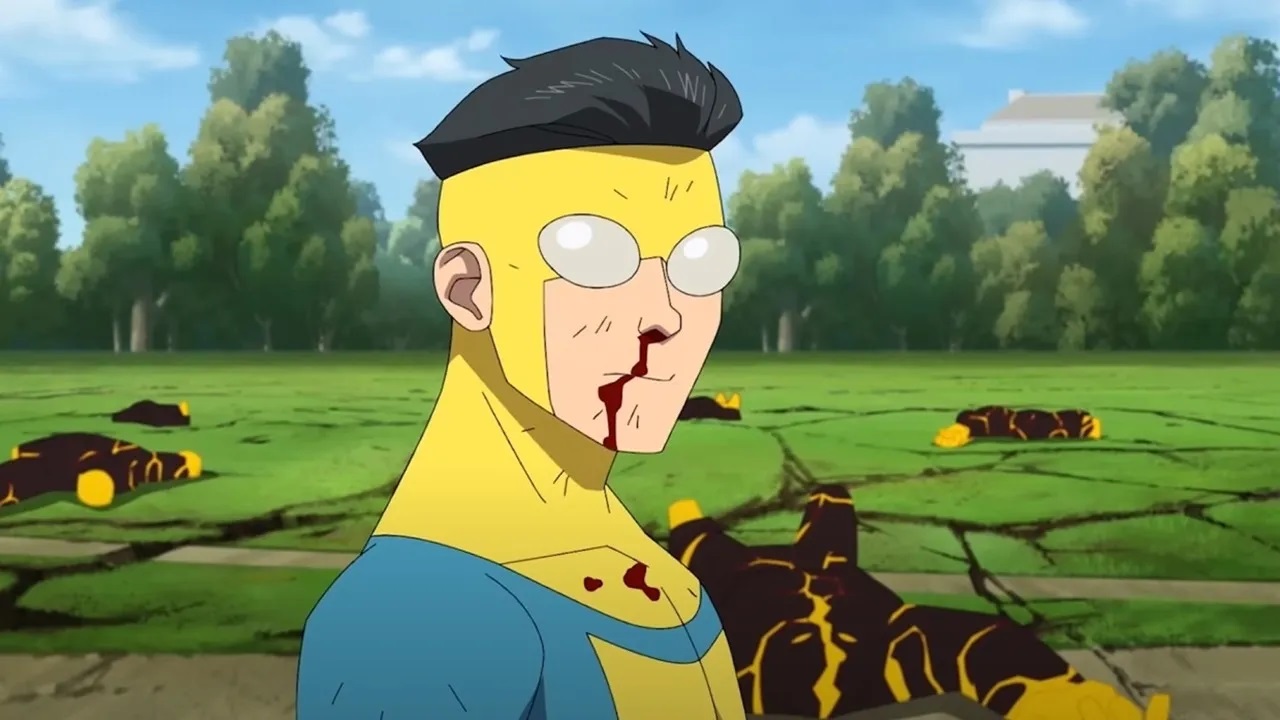
The major themes of Season Two revolve around identity, responsibility, and the legacy of violence. Mark’s fear of becoming like his father is a driving force throughout the season. He is constantly grappling with the shadow of Omni-Man, trying to carve out his own identity while dealing with the immense pressure of being Earth’s primary protector. This internal conflict is portrayed with a raw intensity that adds depth to Mark’s character.
Debbie’s journey is equally compelling. She is a woman trying to rebuild her life after discovering the horrifying truth about her husband. Her struggle with feelings of betrayal and her efforts to move forward are handled with sensitivity and nuance. Sandra Oh’s performance is a highlight of the season, bringing a powerful emotional depth to Debbie’s character.
The theme of responsibility is explored through Mark’s relationships and his superhero duties. His struggle to balance his personal life with his responsibilities as Invincible adds a layer of complexity to the narrative. The show delves into the toll that being a superhero takes on his relationships, particularly with Amber and William. These dynamics are portrayed with authenticity, making the characters’ struggles relatable and engaging.
Production and Animation
The production value of Invincible remains top-notch. The animation is vibrant and detailed, bringing the comic book pages to life with a cinematic flair. The fight scenes are a visual spectacle, combining fluid animation with graphic violence to create intense and memorable moments. The use of color and lighting adds to the overall atmosphere, enhancing the emotional impact of key scenes.
One of the standout aspects of the animation is its ability to convey the brutal reality of the superhero world. The show does not shy away from showing the consequences of violence, and the detailed animation ensures that these moments hit hard. The graphic nature of the fight scenes adds a layer of realism to the show, making the stakes feel higher and the impact of the battles more visceral.
The voice acting is another highlight of the season. Steven Yeun, Sandra Oh, J.K. Simmons, and Sterling K. Brown all deliver exceptional performances, bringing their characters to life with depth and nuance. The supporting cast, including Zazie Beetz, Andrew Rannells, and Gillian Jacobs, also deliver powerful performances, adding to the overall quality of the show.
Final Thoughts
In the end, Invincible Season Two, despite its scattered structure and occasional narrative missteps, shines a light on its strongest elements long enough to leave a lasting impact. The supporting characters may veer in and out of focus, but the central family dynamic of Mark, Debbie, and Nolan provides a compelling anchor. The season juggles a lot, sometimes to its detriment, but it’s at its best when it lets its core characters be difficult, flawed, and intensely human.
Looking forward to the already greenlit Season Three, there is a solid foundation from which the series can build. If the creators can streamline the narrative and give more focus to the emotional and psychological implications of the characters’ journeys, Invincible has the potential to reach even greater heights. Despite the scattered storytelling and some underwhelming subplots, Season Two proves that Invincible is here to stay, continuing to push the boundaries of what a superhero series can be.
Am I really interested in seeing the third season of Invincible? It depends. I wasn’t that interested in seeing the second season either, but the first few episodes hooked me in. Let’s hope that the series gets to end on its own terms and stick the landing after what has been an eventful run full of ups and downs. The potential for greatness is still there, and with the right focus, Invincible can continue to be one of the standout superhero shows on television.



